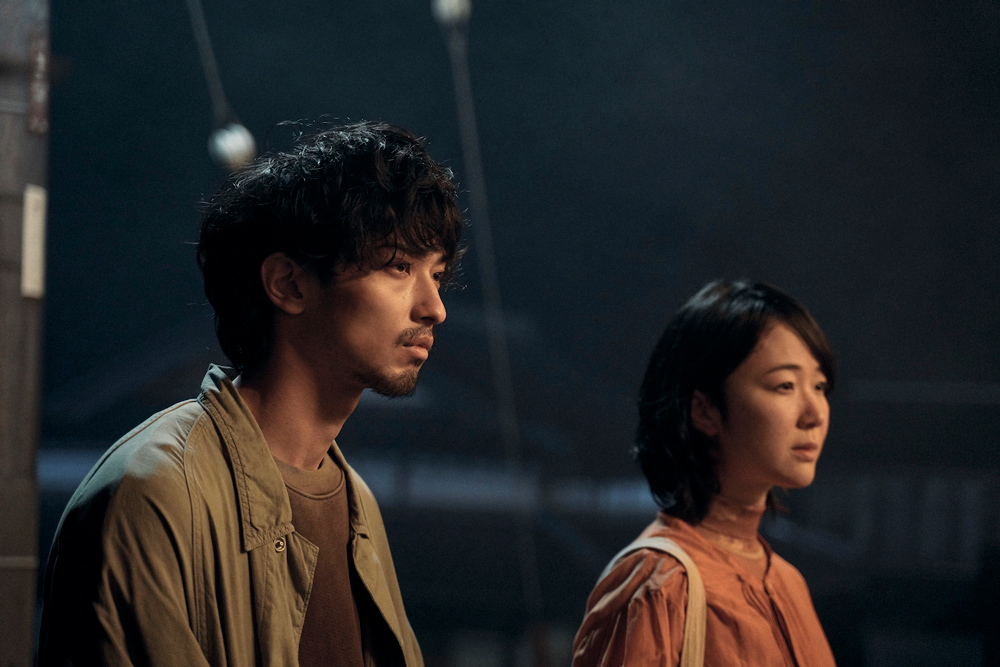!["Village" Director Michito Fujii's origin of the movie and sense of crisis for the future [Director's Interview Vol.307]](https://cinemore.jp/images/2837952aa70ee2ed6c61001fbdf8041317685cd4827c264b93872de53a39e17c.jpg)
"Village" Director Michito Fujii's origin of the movie and sense of crisis for the future [Director's Interview Vol.307]
Star Sands representative Mitsutsugu Kawamura passed away on June 11, 2022. The last movie he watched cranked up was director Michito Fujii's latest film Village (released in theaters April 21st). Set in a remote village, this is a masterpiece that deeply depicts the rise and fall of a young man, Yu (Yokohama Ryusei), who is despised by the villagers.
How did director Fujii give shape to the baton entrusted to him by the famous producer who co-created ``The The Journalist '' (1919) and ``The Yakuza and the Family '' (21)? And what do you think now as a successor who "cuts into the times"? We spoke at length about everything from script writing to film promotion.
Index
- Returning to the origins of film, we aimed to create a work that "can be interpreted differently by different people"
- Kawamura P's sense of choosing Nohgaku against the argument that entertainment is unnecessary
- In Japan, there is no flow of new directors into the entertainment industry.
- How to “rescue” directors in their 20s or younger
- What is the ideal way to promote a movie?
Returning to the origins of film, we aimed to create a work that "can be interpreted differently by different people"
Q: In terms of movie release order, it's interesting that ` `Village'' comes in between ``10 Years to Live'' (22) and `` Go to the End '' (released in theaters on May 19th). I can feel Mr. Fujii's range.
Fujii: Since it's the next movie after `` 10 Years to Live ,'' I wanted to make something that is not only aimed at the general public, but also firmly rooted in the origins of the movie -- something that can be interpreted differently depending on the environment and position the individual is in. I was there. `` Go to the End '', which follows ``Village'', is another entertaining work.
There is also a work with Mitsunori Kawamura, and I wanted to cherish the blank space within myself, so I received a lot of guidance from SYO as I created it.
Q: It was an honor. You also talked a lot about the last scene. ``I want to see something that shows the artist's full potential and leaves the audience behind,'' I said recklessly.
Fujii: No, no. Those kinds of works are surprisingly more memorable. I feel like I don't know how to introduce this...I felt that way with movies when I recently watched `` The Spirit of Inishelin '' (22). After watching it, I'm like, ``Oh, is this the end?'' But then it drags on for a week. It's so funny that you forget whether you watched it on stream or not, but everyone's movie style is different and everyone should be good. I wanted to return to a place like that.

“Village” ©️2023 “Village” Production Committee
Q: From now on, I would like to ask you again how ``Village'' was created. I heard that one of Mr. Kawamura's early ideas was something like ``a meteorite falling and his expression disappearing.''
Fujii: Originally, it was a project that Mr. Kawamura was working on with another director and starring Yokohama Ryusei. I remember talking about something like that when I was planning a project with my predecessor. While reading the proposal at that time, I thought to myself, ``I'm glad it wasn't me,'' but it was a complete boomerang (lol).
Q: When I heard the outline of the project, it seemed like the story was that a garbage disposal facility would be built in a certain village, and that there would be friction between the residents and the facility's staff. .
Fujii: That's right. I think it was a story before the garbage disposal facility was built and a story after it was built.
Q: From there, Mr. Fujii took over the reins and revised the draft over and over again, including creating a caveman version of Yuu.
Fujii: It was my first slump since " The Journalist ". However, there is a strong sense that being The Journalist was extremely difficult because it was simply an unfamiliar world. There were so many things I didn't know about ``Village'', such as environmental issues and Noh theater, so I was studying as I was writing the script and getting closer to the start of production...I felt hysterical for the first time in a while. I couldn't write an interesting script at all.
In the second half, the more I studied about Noh, the more I came to understand it, and once I decided to film the play ``Handan'' as a subject, I completely shifted to that direction. Once I decided to make it a drama about the fall of Issui's dream young man, things went quickly.
Kawamura P's sense of choosing Nohgaku against the argument that entertainment is unnecessary

